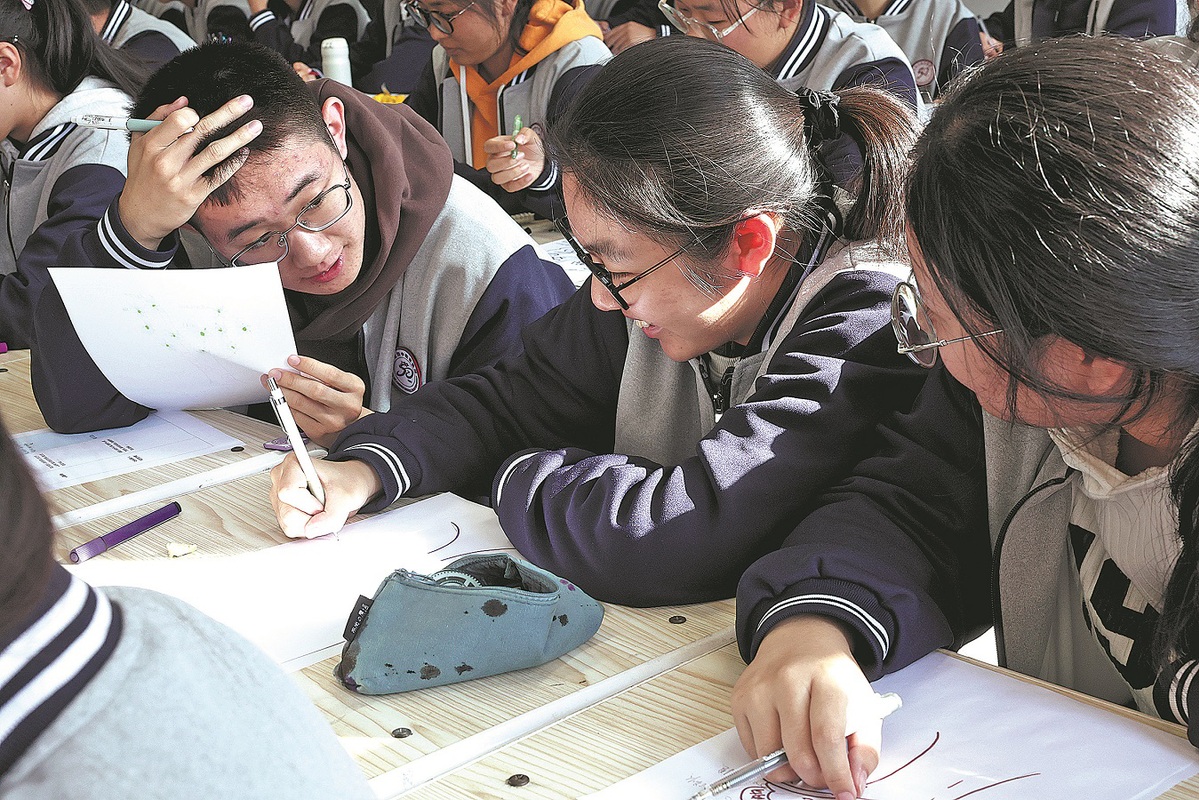Pressure of gaokao success looms over students' new weekend freedom
Policy to enforce two-day break sees mixed response of anxiety, relief


Under pressure
Lou Binyixuan, an 18-year-old art student in Changsha, Hunan, embodies the paradox of the policy for seniors.
Her school recently shifted from a one-day break every two weeks to one day off every week — a change she welcomes but is reluctant to fully embrace.
Despite the extra day off, she chooses to still spend it studying. "I don't want to study on my day off, but I have to because I want to go to a good university," she admits.
Her dream of attending Chongqing University hinges on her final scores in the gaokao, a pressure that drives her to spend her "free "day at school self-study sessions.
"If I sleep in, I feel guilty — like I've wasted time that could've been spent catching up," she explains.
"The reason that there are different tiers of universities means those who go to the good ones can enjoy better future development, so I am very motivated, but sometimes also lazy."
Lou's classmates are equally torn, she said. While some prioritize rest, others follow her routine.
"Out of 48 students, maybe 10 come to school on weekends. The rest stay home, but I doubt they're relaxing. Everyone's terrified of falling behind," she said.
She reserves her sharpest criticism for her school's defiance of national holiday norms, such as its granting only one day off during the three-day Qingming Festival in April.
"They forced us to 'self-study' at school while other students enjoyed their break. I want to study, not be forced to," Lou said.
However, for Long Qianxun, a 16-year-old freshman in Changsha, Hunan, the enforcement has been transformative.
Now, with two days off on the weekend, she sleeps until 10 am, attends a two-hour math tutoring session, and unwinds at family outings. "With more rest on weekends, I am now more energetic during weekdays," she said.
Her parents confiscate her mobile phone before midnight, so she cannot stay glued to it.
Even though she also wants to go to a top university, Long does not want to engage in aimless competition with her classmates, which makes her unhappy.
"Before, a student with top grades would cry in class or say she 'wanted to die' from the stress. This frightened me," she said.
While Long is not among the top students in her class, she believes she can gradually catch up. However, more important than grades are physical and psychological well-being, a sentiment her parents agree with, she added.
























